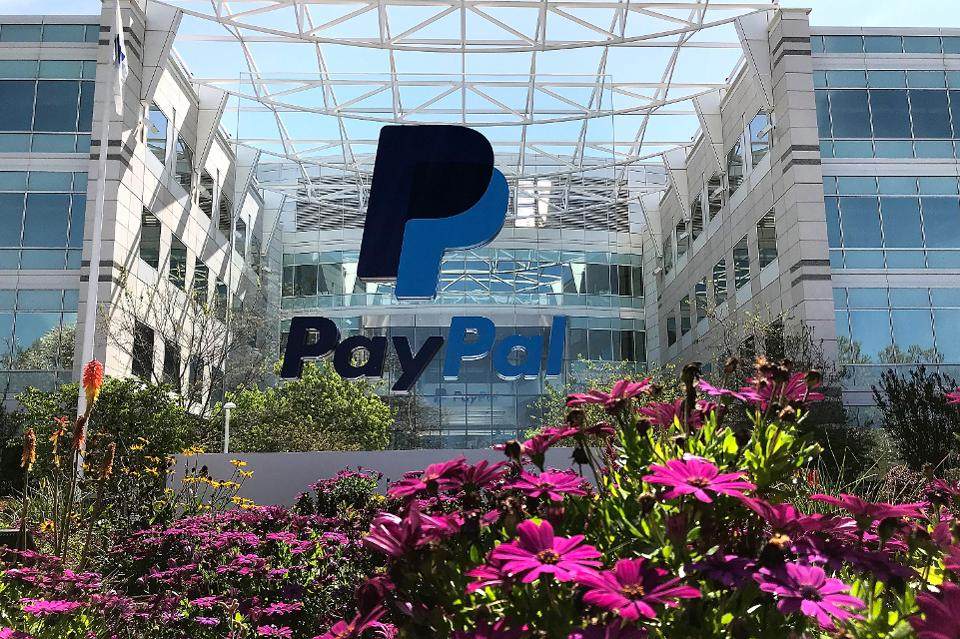
PayPal has joined a Series A investment in Cambridge Blockchain, a startup working to give individuals a way to own their own online identities without the need of middlemen like Facebook, much the way bitcoin lets its users store value without a bank.
As part of the investment, PayPal's first in blockchain, the company is exploring how it might use Cambridge Blockchain’s platform to let its users prove who they are while still preventing personal information from being unnecessarily shared.
Think Facebook login, but where the users have control over who gets to see the information used to prove who they are.
Prior to today's announcement PayPal’s only known blockchain work was a patent filed in March 2018 to speed up cryptocurrency transaction rates and an internal project to incentivize employee participation using tokens issued on a blockchain. But today's announcement provides some of the clearest evidence yet about how the $121 billion PayPal might employ blockchain in the future.
“We made an investment in Cambridge Blockchain because it is applying blockchain for digital identity in a way that we believe could benefit financial services companies including PayPal,” a PayPal spokesperson told Forbes.
The funding is an extension of Cambridge Blockchain’s Series A funding round, revealed in May 2018, including a new investment from Omidyar Network. Neither PayPal nor Cambridge Blockchain disclosed the investment amount. Recent filings with the SEC, however, indicate the company raised $3.5 million in new equity since the initial $7 million round led by Foxconn’s HCM Capital.
The Boston company plans to spend the new capital on hires and on research and development. It employs 15 people, including 11 in Boston to handle the bulk of the engineering, three in Paris to help manage the first rollout of its technology in Luxembourg later this year, and its newest hire in Beijing, to help with a number of early-stage projects with Taiwan manufacturing giant Foxconn.
While Cambridge Blockchain's technology is intended to give Luxembourg's roughly 600,000 residents increased control over their identities across the internet, Foxconn, the maker of Apple's iPhone, is using the technology in other ways, including to remove the need for a central warehouse by connecting suppliers directly to manufacturers.
“If there’s no warehouse, that’s a lot of savings in inventory costs,” says Jack Lee, managing director of Foxconn’s venture capital arm, who as a board member at Cambridge Blockchain introduced the startup to PayPal Ventures last year.
In an interview with Forbes, Cambridge Blockchain’s CEO, Matthew Commons, 39, said he first worked with PayPal as part of Fintech Europe 2018, an accelerator co-hosted by PayPal to help early-stage startups deal with increasing regulatory requirements relating to the region’s General Data Protection Regulation (GDPR) and other privacy considerations.
The accelerator concluded in Luxembourg, where PayPal has an office and Cambridge Blockchain is preparing to launch its first live product with LuxTrust, a firm backed by the Luxembourg government.
“We envision a future where users have a lot more direct control over their personal data, and we also believe in open, interoperable architectures,” says Commons. “We want to get away from a world where people are really locked into one specific platform and are stuck with that.”
Which is where the potentially high stakes of PayPal’s investment really start to become apparent—and complicated. One of the most notorious proprietors of personal information is Facebook, the $480 billion social network that helps advertisers and political strategists target its users for a fee.
In May 2018, former PayPal president David Marcus, now at Facebook, founded a group to look into how the social network could use blockchain. As Facebook explores the potential impact of blockchain on its business model, so too has a boutique industry emerged to shine a light on the issue and seek a solution.
So far, Microsoft, IBM, Mastercard, Cambridge Blockchain and others have joined the Decentralized Identity Foundation, a non-profit organization intended to help build an open ecosystem where individuals can share in the revenue generated from their own identities or pick up that information and take it to another place. In May 2018, blockchain startup Blockstack announced a $1 million fund to build a Facebook killer.
While Cambridge Blockchain is working to move identities for a wide range of uses to any number of private, or public blockchains, PayPal has focused its exploration on financial applications, according to the spokesperson. “Our investment will allow us to explore potential collaborations to leverage blockchain technology,” he said.








